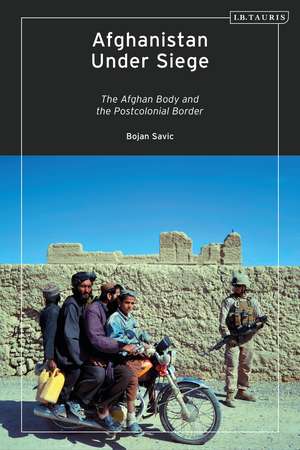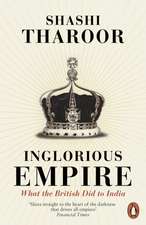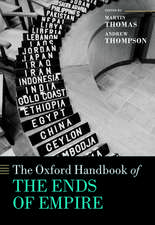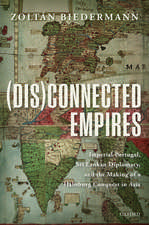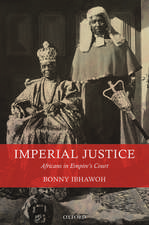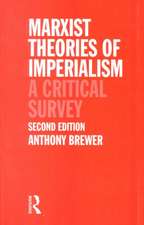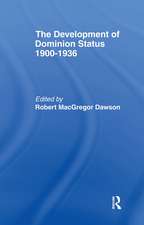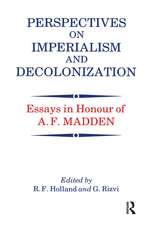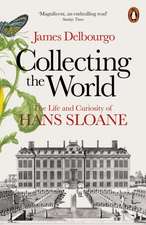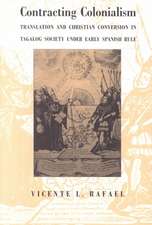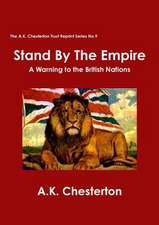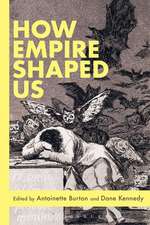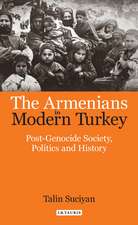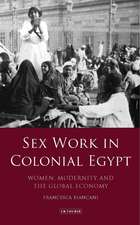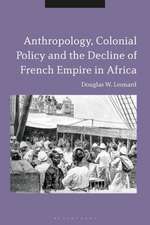Afghanistan Under Siege: The Afghan Body and the Postcolonial Border
Autor Dr Bojan Savicen Limba Engleză Paperback – 29 dec 2021
| Toate formatele și edițiile | Preț | Express |
|---|---|---|
| Paperback (1) | 198.30 lei 6-8 săpt. | |
| Bloomsbury Publishing – 29 dec 2021 | 198.30 lei 6-8 săpt. | |
| Hardback (1) | 598.76 lei 6-8 săpt. | |
| Bloomsbury Publishing – 24 iun 2020 | 598.76 lei 6-8 săpt. |
Preț: 198.30 lei
Preț vechi: 258.14 lei
-23% Nou
Puncte Express: 297
Preț estimativ în valută:
37.94€ • 39.62$ • 31.40£
37.94€ • 39.62$ • 31.40£
Carte tipărită la comandă
Livrare economică 04-18 aprilie
Preluare comenzi: 021 569.72.76
Specificații
ISBN-13: 9780755637553
ISBN-10: 0755637550
Pagini: 264
Dimensiuni: 156 x 234 mm
Greutate: 0.37 kg
Editura: Bloomsbury Publishing
Colecția I.B.Tauris
Locul publicării:London, United Kingdom
ISBN-10: 0755637550
Pagini: 264
Dimensiuni: 156 x 234 mm
Greutate: 0.37 kg
Editura: Bloomsbury Publishing
Colecția I.B.Tauris
Locul publicării:London, United Kingdom
Caracteristici
A strong area of interest and scholarly debate.
Notă biografică
Bojan Savic is Lecturer in International Relations at the University of Kent, and Lecturer in Political Science at the Brussels School of International Studies, Brussels, Belgium.
Cuprins
PART I: Questions, Who is Addressing Them, and HowChapter 1: Introduction: The Abnormal of the Afghan War on TerrorPART II: Why Does Postcolonial Security Care About Herat?Chapter II: Mapping Out Tools of Critique: A Conceptual Framework Chapter III: Spaces and Forces of Pacification and ContainmentPART III: Power over Heratis and Resistances to It: Three Case StudiesChapter IV: How Pacified Heratis "Milk the Cow": Nonviolent Resistances to Global SecurityChapter V: Banished by Culture, Violated in Its Midst: Managing Musalla's Homeless between Minarets, Development, and SecurityChapter VI: Experiencing Self as the Periphery: Heratis at the Iranian-Afghan BorderPART IV: ConclusionChapter VII: On Postcolonial Power EquilibriaIndex
Recenzii
Afghanistan Under Siege is a detailed portrait of the fears and fantasies driving twenty-first century colonialism. At the heart of anxiety is the Afghan body, terror in potentia. Controlling, monitoring, securitizing and informalizing it are apparatuses of governance and development running on fantasies, willfully blind to their contradictions. The global war on terror's original target now has its Foucaultian portrait.
Bojan Savic's work on global security is of notable public, scholarly, and political interest. Rooted in local fieldwork on the liminal 'postcolony' Herat, it is a timely contribution to a subject of global concern. Insightful and thought-provoking, Savic engages with the mutual, yet ambivalent co-construction and co-dependence of power and resistance. Populating the field of security studies with Heratis and their experiences of oppression, Afghanistan Under Siege visualises the mechanisms that simultaneously create resistance to, and cooperation with materialisations of power-in-the-name-of-security. The internationally-funded structural violence that is so built into, and borne out of, the geopolitical containment of Afghan bodies underlines the continuing importance of challenging the colonial past in our (post)colonial present.
Bojan Savic's work on global security is of notable public, scholarly, and political interest. Rooted in local fieldwork on the liminal 'postcolony' Herat, it is a timely contribution to a subject of global concern. Insightful and thought-provoking, Savic engages with the mutual, yet ambivalent co-construction and co-dependence of power and resistance. Populating the field of security studies with Heratis and their experiences of oppression, Afghanistan Under Siege visualises the mechanisms that simultaneously create resistance to, and cooperation with materialisations of power-in-the-name-of-security. The internationally-funded structural violence that is so built into, and borne out of, the geopolitical containment of Afghan bodies underlines the continuing importance of challenging the colonial past in our (post)colonial present.
